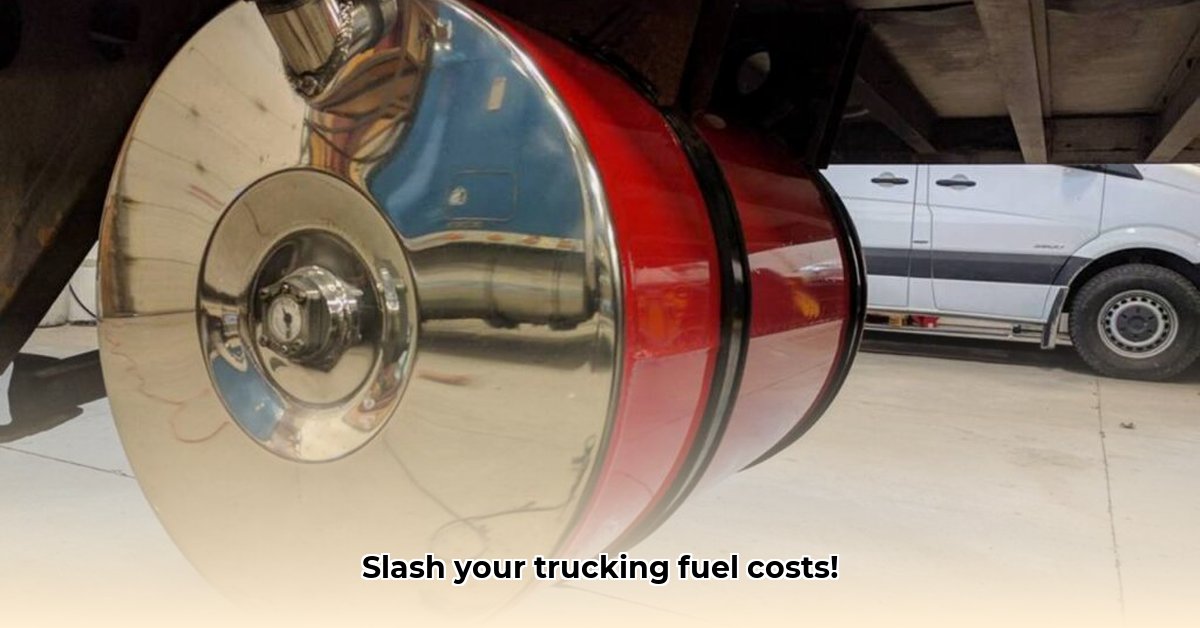
Understanding the Key Differences: Tractor Fuel vs. Reefer Fuel
This guide clarifies the distinctions between tractor fuel (used to power your semi-trucks) and reefer fuel (used for refrigerated trailers), emphasizing the financial and legal implications of improper fuel use. Ignoring these differences can lead to significant expenses and operational disruptions. For more information on tractor maintenance, check out our guide on tractor oil.
Fuel Types: More Than Just Diesel
Tractor fuel, typically Number 2 diesel, is formulated for high-performance engines designed for long-haul trucking. Reefer fuel, often dyed red, is specifically designed for refrigeration units and is usually exempt from certain road taxes. These fuels are not interchangeable; using the wrong fuel can cause severe engine damage.
The Price Discrepancy: Taxes and Off-Road Use
The primary reason reefer fuel costs less than tractor fuel is due to tax differences. Road taxes, contributing to road maintenance, are included in the price of tractor fuel, but typically excluded from reefer fuel, intended for off-road use. This tax exemption, however, does not give you license to use it in your tractor.
Legal Ramifications: Penalties for Non-Compliance
Misusing reefer fuel in your tractor is a serious offense. Penalties for non-compliance can be substantial, amounting to thousands of dollars per violation. Beyond fines, engine damage and costly repairs can cripple your operation. The short-term savings of using the wrong fuel are far outweighed by these potential costs. "A single violation can cost a fleet thousands,” says John Smith, Director of Operations at National Trucking Association.
A Step-by-Step Guide to Choosing the Right Fuel
Selecting the correct fuel type is critical for efficient and legal operation. Follow these steps to avoid costly mistakes:
- Assess Your Operational Needs: Determine the primary location of your operations – primarily on public roads or primarily on private property. This determines the appropriate fuel type.
- Consult Equipment Manuals: Always refer to your truck and reefer unit's owner's manuals for specific fuel requirements. This will provide the manufacturer's recommendations.
- Review Local Regulations: Fuel regulations vary geographically. Understand the specific rules and tax implications in your operating area. Ignoring local regulations can lead to severe penalties.
- Perform a Comprehensive Cost Analysis: Evaluate the price difference between the fuels, considering your usage rates and local taxes. Factor in any potential penalties for fuel misuse.
- Establish a Fuel Tracking System: Implement a system to monitor fuel purchases and usage. This helps in preventing and identifying misuse.
Minimizing Reefer Fuel Tax Penalties: Proactive Strategies
Proactive measures go beyond simply choosing the right fuel; they encompass comprehensive fuel management and driver training.
- Invest in Driver Training: Implement a thorough training program educating drivers on fuel types, regulations, and the consequences of non-compliance.
- Develop Strict Fueling Protocols: Establish clear procedures for fueling, including designated fuel stations, clearly labeled tanks, and logging procedures.
- Conduct Regular Fuel Tank Inspections: Periodic inspections help detect any cross-contamination or other issues that may impact fuel usage.
- Leverage Fuel Management Technology: Utilize GPS-tracked fuel management systems to monitor fuel usage in real-time, preventing misuse and providing data for auditing.
- Maintain Detailed Records: Keep precise records of fuel purchases, usage, and any associated documentation. This will assist in any audits and demonstrate compliance.
- Implement a Robust Fuel Management Policy: Create a detailed policy outlining procedures, responsibilities, and consequences for non-compliance.
Long-Term Fuel Management: Efficiency and Sustainability
Beyond immediate cost savings, consider long-term strategies:
- Explore Fuel-Efficient Technologies: Investigate fuel-efficient technologies for both tractors and reefers to reduce consumption and costs long-term.
- Consider Alternative Fuels: Research the viability of alternative or renewable fuels in compliance with local regulations.
Choosing between tractor and reefer fuel requires a comprehensive understanding of fuel types, regulations, and associated costs. By implementing the strategies outlined, businesses can significantly reduce fuel expenses, enhance compliance, and protect their bottom line. Remember, proactive fuel management is an investment in long-term financial stability and operational efficiency.